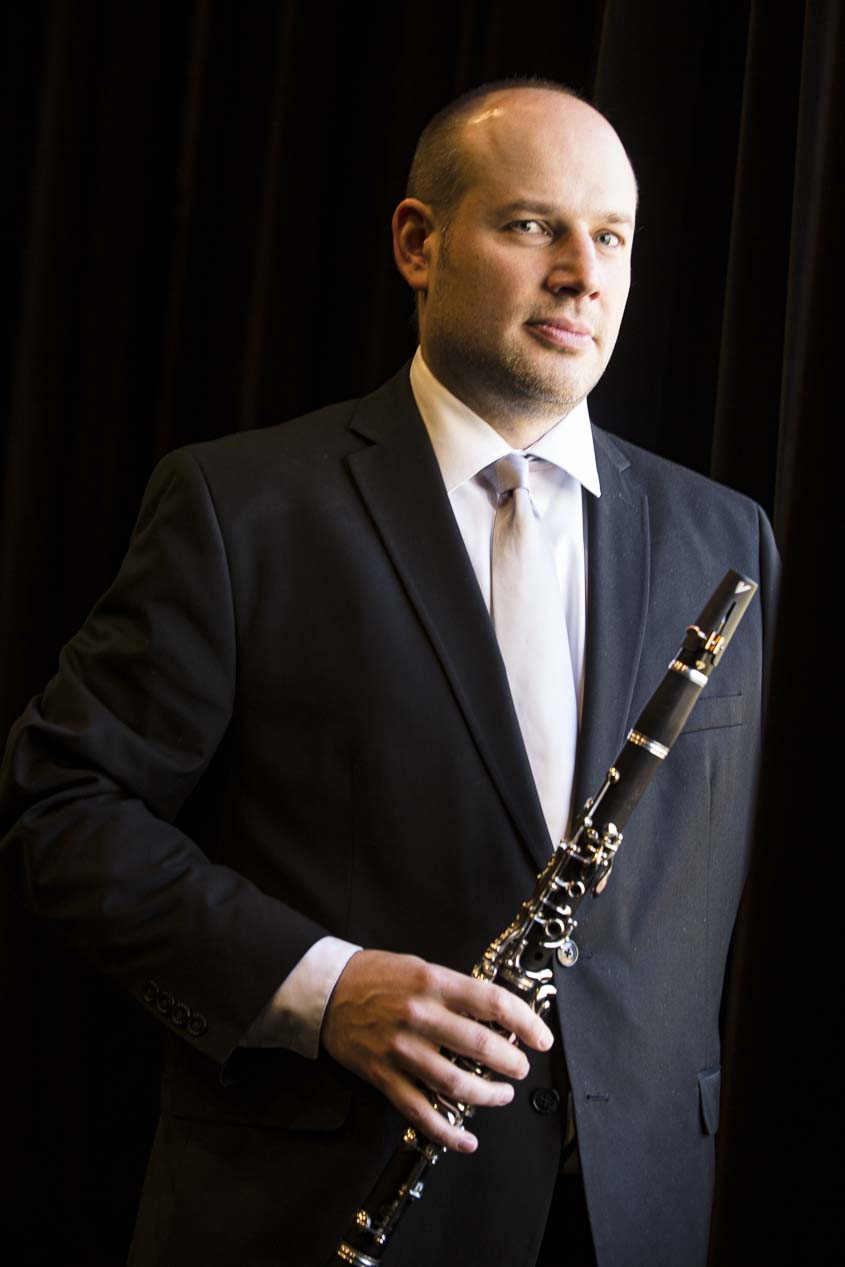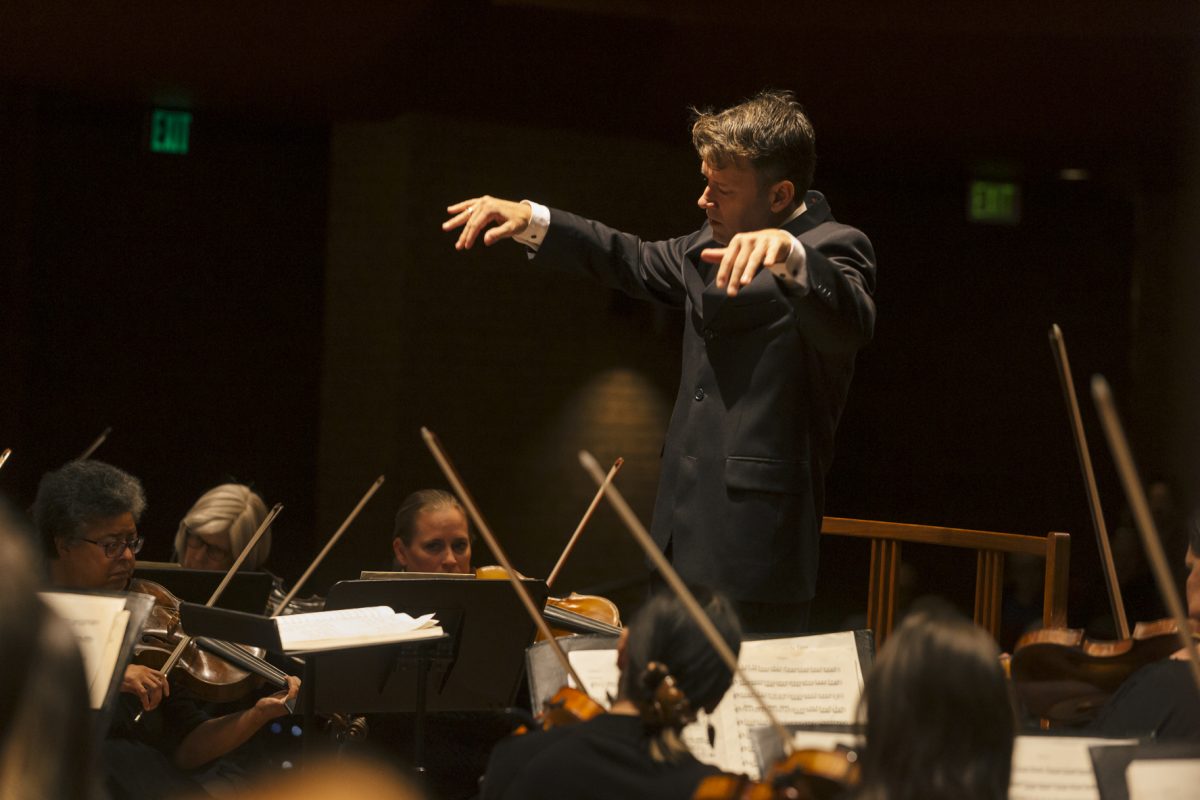Sunday’s performance of Ludwig van Beethoven’s Symphony No. 9 in D minor, op. 125, the “Ode to Joy,” by the Memphis Symphony Orchestra (MSO), the Memphis Symphony Chorus, and the University of Mississippi Concert Singers, was a deeply emotional experience, in part because it held a mirror up to this moment in history.
For many, it began on the heels of “The Star Spangled Banner,” when the orchestra and chorus launched into another national anthem, “Державний Гімн України,” aka “The Glory and Freedom of Ukraine Has Not Yet Perished,” echoing orchestras and performers around the world who have done the same in recent weeks. The translated lyrics, projected on a screen above the players, gave a clue as to why the fledgling democracy has been giving the Russian Army a run for its money:
Still upon us, young brethren,
Fate shall smile!
Our enemies shall vanish
Like dew in the sun.
But the feelings evoked in the audience were clearly those of sympathy and solidarity more than the ire of the warrior. Breaking the spell somewhat, the orchestra then presented a short bon-bon of a piece, Michael Markowski’s Joyride, full of whimsical quotations of the Beethoven masterpiece that was to follow. To these ears, hearing a somewhat coy preview of some of the grandest motifs in the Western classical canon was a distraction, but perhaps for musicians who have played Beethoven’s Ninth all their lives, it was a welcome palate cleanser.
And then, speaking for a moment, conductor Robert Moody brought our thoughts back to the philosophical, reflective, and historical dimensions, especially when he noted that MSO member Andre Dyachenko was born in Ukraine. (The principal clarinetist simply held his instrument aloft in a nod to the acknowledgement).

And then Moody leaned into this historical moment. “Of course, music cannot stop a tank,” he said, “any more than it can stop a virus.” But, noting that Beethoven began composing his Ninth Symphony in 1822, Moody said that such music persists by appealing to the better side of humanity — a force to be reckoned with. The piece has been performed for 200 years, and will be performed for another 200, he said, precisely because it brings out our best.
With that, the game was afoot, as the MSO collectively braced themselves and leapt into the percussive themes of the first movement under Moody’s emphatic gestures. And the performance that followed was supremely sensitive to the work’s dynamics, from the timpani’s bombast to every sudden shift to waves of flowing strings. The blending of the tones of the horns, strings and woodwinds was especially adept.
All of it served to remind us of the world class institution Memphis has on its doorstep. And that was amplified further when the vocal soloists, Laquita Mitchell (soprano), Taylor Raven (alto), Limmie Pulliam (tenor), and Joshua Conyers (baritone) came to the front and galvanized the house with the flowing German poetry of lyrics based on Friedrich Schiller‘s writings.
The epiphany of Beethoven’s pioneering work was felt anew, as if the Memphis audience was witnessing its premiere, especially when the combined power of two choral groups stood to deliver their passages with overwhelming passion and precision. The message of hope and transcendence embodied by “Ode to Joy” was made all the more powerful by the translations that appeared once again on the screen.
Joy, bright spark of divinity,
Daughter of Elysium,
Fire-inspired we tread
Within thy sanctuary.
Thy magic power re-unites
All that modernity has ruptured,
All men become brothers,
Under the sway of thy gentle wings.
The somewhat unconventional translation (i.e., replacing the usual “custom” with the term “modernity”) served as an invitation to take the words to heart in these terror-filled times. The fact that “Ode to Joy” has been adopted as the European Union’s anthem linked it with the contrasting lyrics and gravitas of Ukraine’s national anthem, and brought home the current era’s struggles, which hold all who oppose authoritarianism and terrorism captivated. Somehow, as Dr. Donald Trott and Dr. Elizabeth Hearn (directors of the University of Mississippi Concert Singers) and Dr. Lawrence Edwards (director of the Memphis Symphony Chorus) joined Moody and the MSO players in a bow, all of that historical passion was expressed in the long, well-deserved standing ovation.
